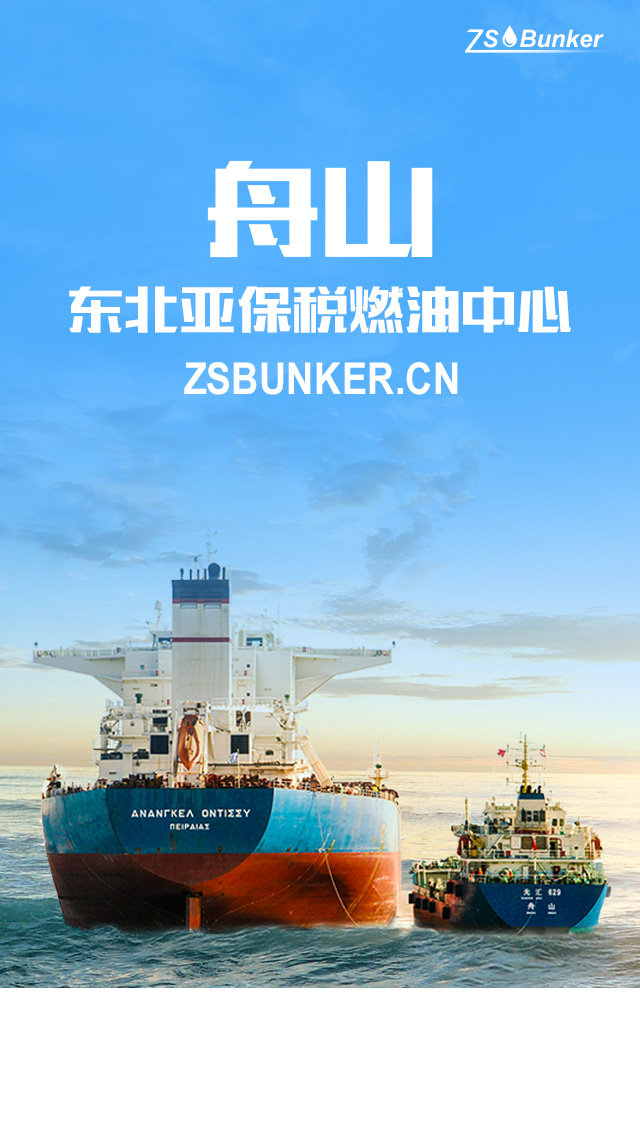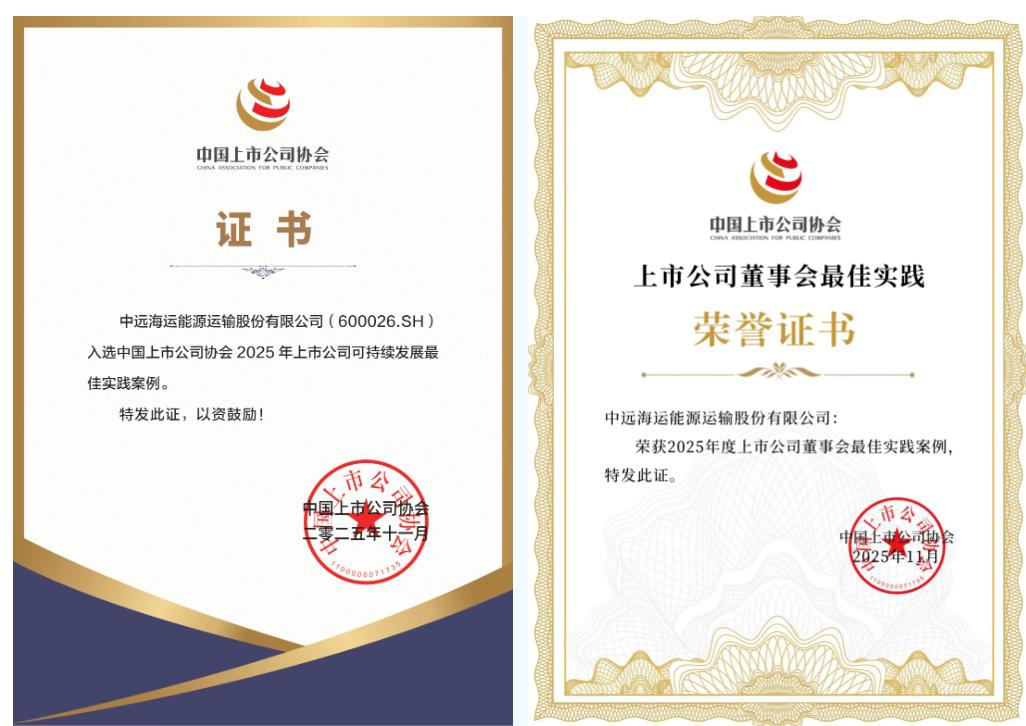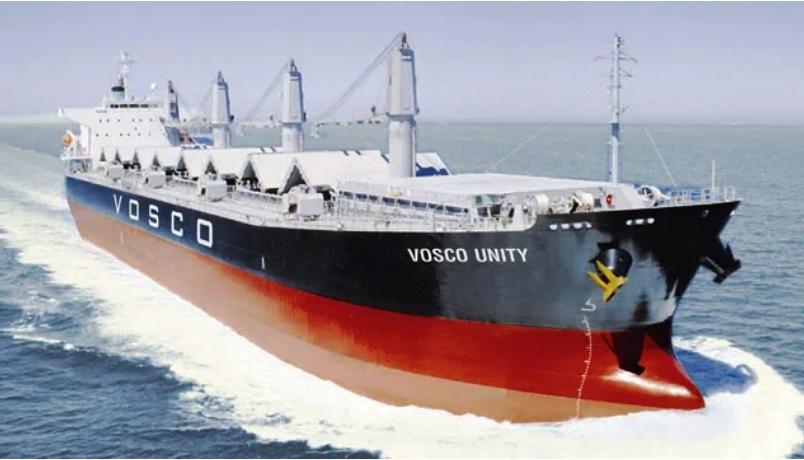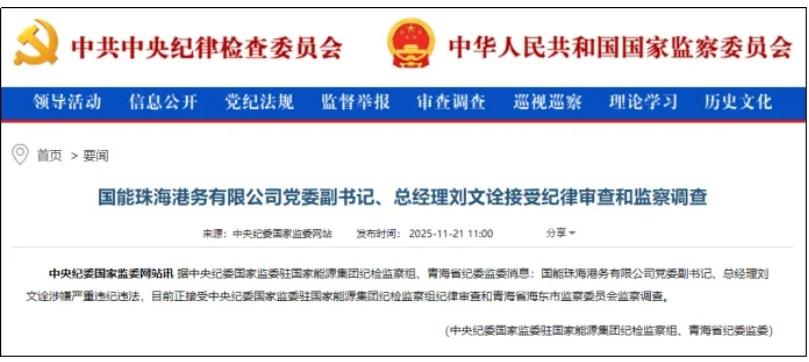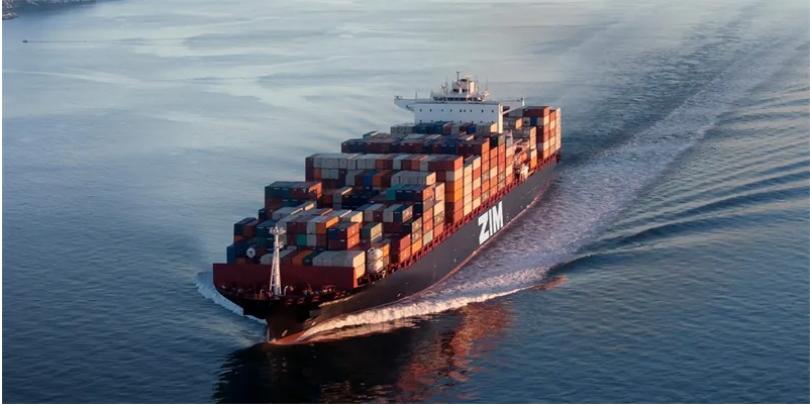
【摘要】在航运实务中,关于这个代理人的行为,到底是不是代表租家,有时候会比较难以界定。尤其是租约链比较长的情况下,最下家或代理往往和原船东并无合同或其它法律关系,在这种情况下,原船东就无法依赖NYPE期租合同第8条,找期租租家索赔损失。本文通过对The“Goodpal”一案的分析,说说这个代理人的问题。
【关键词】短货、代理人、指示、提单
在航运实务中,经常碰到一船货有多份提单有多个收货人的情况,而这些货物需要卸在多个不同的港口。对于这些收货人而言,肯定是要求船长尽可能多地卸下比其所持有的提单数多的货物,以达到付了提单数的货款能够收到比提单数多的货物,从而达到利益最大化。但如果船长听从了这些收货人的要求,在其中某个卸港,卸下的货物比提单数多了,那么必然,在别的港口货物将出现短缺,除非在装港的时候货物比提单数来得多。
那么在这种情况下,对于短货的收货人而言,肯定会采取行动,比如扣船等要求船东赔偿损失。而船东在这种情况下,只能依据租约,要求租家承担责任或者请保赔协会出面,提供担保以便船舶能够被释放。但如果租约链上有多个当事人,最下家或代理或收货人都和原船东没有合同或其它的法律关系,船东无法找他们直接索赔,因为索赔只能对抗有合同关系的一方。那么,收货人的行为是否能代表租家呢?如果能代表租家,那么收货人将是租家的代理人,从而船东将有权利依据期租合同下的条款,找租家索赔损失。
首先来了解一下这个“代理人”的含义,可参如下:有明示的(口头或书面)或暗示的授权代表另一方(委托人)行为的,委托人与其他当事人订立契约关系的一方。代理在委托人,也有责任在其控制之下,在委托人授权范围内行事,其行为将代表委托人的行为。在明确的授权之下,将有额外的权限,但对于委托人的货物代理无权转为其所有,除非代理人的留置权适用。一般来说,广告代理商不属于代理的定义,因为他们代表客户购买服务。
Party that has express (oral or written) or implied authority to act for another (the principal) so as to bring the principal into contractual relationships withother parties. An agent is under the control (is obligated to) the principal, and (when acting within the scope of authority delegated by the principal) binds the principal with his or her acts. Additional powers are assigned toagent under the legal concept of 'apparent authority.' The agent, however, does not have title to the principal's goods in his or her possession, except where agent's lien is applicable. In general,advertising agencies do not fall under this definition of an agent, becausethey act as principals for the services they buy on behalf of their clients.
简单点如下,根据代理关系,一方同意并获得授权代表另一委托人,以具有法律约束力的个体,与第三方经行特定的商业交易。
One who agrees and is authorized to act on behalf of another, a principal, tolegally bind an individual in particular business transactions with third parties pursuant to an agency relationship.
再简单点,如Sumption勋爵在The “Global Santosh” 案中说的,严格来讲,代理人是委托人授权为其行事的人。
Strictly speaking, an “agent” is a person authorized by the principal to perform some act on his behalf.
在前篇关于船上水尺与岸方数据有差异的文中提到,Evens勋爵在The “Arctic Trader”案中,认为第三方发货人应该被认为是租家的代理人。
It is clear, in our judgment,that when the time charterer instructs the master, pursuant to the employment provisions of clause 8, to receive certain cargo on board, and the cargo is loaded at the charterer’s expense, although under the supervision and maybe at the risk of the shipowner, then the cargo is loaded by or on behalf of the charterer for the purposes of the charter-party, and a third party shipper should be regarded as the charterer’s agent accordingly.
那么如果在卸港,是否可以反过来说,收货人也可以被认为是租家的代理人呢?先来看看The “Goodpal”案。
一、基本案情
在该案中,Merit Shipping Co.Inc(以下简称“船东”)在1995年3月1日将Goodpal轮(以下简称“该轮”)以NYPE的租约格式租给了T.K. Boesen A/S(以下简称“租家”),Boesen又将该轮航次期租给了Finagrain去执行一个从南美装粮回中国的航次。
合同为背靠背,相关条款如下:
8. That the Captain shall prosecute his voyages with the utmost despatch, and shall render all customary assistance with ship's crew andboats. The Captain (although appointed by the Owners ) shall be under the orders and directions of the Charterers as regards employment and agency; and Charterers are to load, stow and discharge discharge the cargo at their expense under the supervision of the Captain, who is to sign Bills of Lading forcargo as presented, in conformity with Mate’s or TallyClerk’s receipts.
26. Nothing herein stated is to be construed as a demise of the vessel to the Time Charters. The Owners to remain responsible for the navigation of the vessel, insurance, crew and allother matter, same as when trading for their own account.
35. Any liability to third parties for cargo claims shall be borne by Owners/Time charterers in accordance with the Interclub NYPE Agreement as amended May 194. The party having paid the claim(s) shall submit same to the other party with supporting documents as soon as possible, but neither party shall between themselves refer to the two(2) years time limit as defence.
The Inter-Club agreement provided inter alia…
2. Apportionment of cargoclaims
…As regard short delivery and overcarriage claims, where there is clear and irrefutable evidence that the shortage or overcarrriage, as the case may be, was due to act, neglect or default on the part of Owners or Charterers’ servants or agents, then the party whose servant or agents were at fault shall bear the claim in full…
42. Vessel to work night and day, if required by the Charterers, and all cranes to be available for operation at all times; hire stipulation herein to include the following services: a) Clearing of cranes from stowage in preparation for loading and/or discharging. b) Opening and closing of hatches in preparation for loading and/or discharging. c) Supervision of loading and/or discharging. Furthermore,it is understood that the Master shall supervise the stowage of the cargo thoroughly and let one of his Officers control all loading, handling, stowageand discharge of the cargo and he is to furnish the Charterers with stowageplans as well as tally slips and other documents, as the case may be.
该轮在阿根廷的San Lorenzo装了27,000吨大豆,接着在巴西的Rio Grande装6,000吨,于1996年2月26日完货开往中国。
第一卸港为张家港,按分租家的指示,将在张家港卸19,006.01吨,余下的13,993.09吨到第二卸港防城港卸。5月10日早上,按船方的水尺计算,已经在张家港卸下了19,006.01吨货,但收货人说按他们计算货量不足,要求继续卸110吨,船长同意,于是在10日的1400到1710继续卸下这110吨,按船方水尺数货物已卸下19,116吨。
当船准备开航离港的时候,收货人又坚持要求船长继续卸额外的250吨,声称如果船长不同意,船舶将被扣留无法开航。该轮船长声称当时有中国政府的测量人员(商检)上船,做的水尺数去佐证张家港的收货人要求。
该轮船长随后请示船东,按船东要求需取得收货人保函;在取得收货人的保函之后,船长同意继续卸货。在5月11日一早开始继续卸,于当天0740卸完,船方的水尺计算在张家港总共卸下了19,455吨货。
在第二港防城,因为提单货量为13,993.90吨,但由于该轮在张家港多卸了,导致在防城港只剩下13,451.50吨货物,防城港的收货人于是将该轮扣下,找船东索赔短货损失。船东的P&IClub随后提供280,000美元的担保,船舶被释放。在防城港的争议,最终于1997年1月份以140,000美元解决此索赔。
二、仲裁
船东声称,收货人作为租家的代理人,要求船长在第一港张家港卸下超过提单数的货量,直接导致了在第二港防城短货,遭致收货人索赔。船东声称在租约第8条下,租家负责卸货,收货人作为租家的雇员或租家的代理人也这么做,但却多卸了货物。在第二港出现短货是由于租家的雇员或租家的代理人的行为,疏忽或过失导致的,这符合Inter-Club Agreement第(b)款的解释,因此租家应该承担100%的短货责任。
先来简单了解一下这个Inter-Club Agreement关于责任分配的规定,如下:
The apportionment
(7) The amount of any cargo claim to be apportioned under this Agreement shall be the amount in fact borne by the party to the charterparty seeking apportionment, regardless of whether that claim may be or has been apportioned by application of this Agreement to another charterparty.
(8) Cargo claims shall be apportioned as follows:
(a) Claims in factarising out of unseaworthiness and/or error or fault in navigation or management of the vessel:
100% Owners
save where the Owner proves that the unseaworthiness was caused by the loading, stowage, lashing,discharge or other handling of the cargo, in which case the claim shall be apportioned under sub-Clause (b).
(b) Claims in factarising out of the loading, stowage, lashing, discharge, storage or otherhandling of cargo:
100% Charterers
unless the words"and responsibility" are added in Clause 8 or there is a similar amendment making the Master responsible for cargo handling in which case:
50% Charterers
50% Owners
save where the Charterer proves that the failure properly to load, stow, lash, discharge orhandle the cargo was caused by the unseaworthiness of the vessel in which case:
100% Owners
(c) Subject to (a)and (b) above, claims for shortage or overcarriage:
50% Charterers
50% Owners
unless there is clearand irrefutable evidence that the claim arose out of pilferage or act orneglect by one or the other (including their servants or sub-contractors) inwhich case that party shall then bear 100% of the claim.
(d) All other cargoclaims whatsoever (including claims for delay to cargo):
50% Charterers
50% Owners
unless there is clear and irrefutable evidence that the claim arose out of the act or neglect of theone or the other (including their servants or sub-contractors) in which case that party shall then bear 100% of the claim.
简单点说就是,出现货损货差,如果是船东的责任,那么100%由船东承担;如果是租家的责任,那么100%由租家承担。如果说不清道不明,责任无法区分的情况下,那么双方各自承担50%。
在该案中,船东引援的是(b)Claims in fact arising out of the loading, stowage, lashing, discharge, storageor other handling of cargo: 100%Charterers.
仲裁员不认为在租约第8条下,为了卸货的目的,收货人可以被认为是租家或分租家的代理人,拒绝了船东此主张。仲裁员认为,收货人在第一卸港要求多卸货的行为仅仅是他们自己的行为,不能被认为是Inter-Club Agreement (b)中的租家或分租家的责任。在第二港发生短货的原因是由于船长自己的决定造成的,在收到收货人的保函后,卸下了超过提单数的货量,他明知道这一情况。船东的救济补偿因此不能对抗租家,而只能在保函下对抗在张家港的收货人。
The receivers were acting only for themselves when requestin the discharge of additional cargo at the first discharge port andtheir conduct was not to be treated as that of the charterers or sub-charterersfor the purposes of par.2 of the Inter-Club agreement. Accordingly, the shortlanding at the second port was attributable to the Master’s decision knowingly to discharge a quantity of cargo in excess of the bill of lading quantity against the letter of indemnity of the receivers at the first port. The Owner’s remedy was therefore not against the charterers, but against the receivers under the letter of indemnity.
船东不服仲裁员裁决,上诉。
三、上诉院判决
船东的代表律师Gavin Geary主张,租约第8条的作用目的是为了把所用卸货的责任放到租家身上;因为卸货责任与租家相关,那么在第一个港收货人安排卸货作业应被视为是租家的代理人来行使此职责。因此,如果那些收货人要求卸下额外的货,可被认为是租家的卸货指示。即使收货人不是租家的代理,按照Inter-Club Agreement, 船长的行为不存在疏忽或者过错。尤其是,在租约第8条下,是租家负责卸货作业,责任在租家身上,因此船长没有责任义务去阻碍收货人卸货安排。“Underthe supervision of the Master”这一句话的要求是宽松的,它允许船长去干预,但船长唯一的责任需要做的是,船舶维修保养的完整性或船舶的适航性。
船东的代表律师Gavin Geary引援Evens勋爵在The “Arctic Trader”案中的判决,第三方发货人应该被认为是租家的代理人。辩称,如上诉院判决的,发货人依据租约要求安排装货被认为是期租租家的代理,那么必然能够得出,收货人安排卸货也即是以租家的代理人来卸货。
上诉院Colman法官认为,在判断NYPE租约或其它合同下,关于发货人或收货人,是否应该被认为是租家的代理人,所涉及到的当事人的权利义务,长久以来已经形成了以下基本原则。
如第8条第二句体现的那样,船舶配有船长和船员,以约定租期租给租家,那么租家有权利给船长发关于船舶使用的指示。
(i)The vessel having been chartered for an agreed period of time together with its master and crew, the charterers are entitled to giveinstructions to the master as to the employment of the vessel. This isreflected in the second sentence of clause 8 of the NYPE form.
在这段话上下文的语境里,使用船舶的意思是是否需驶向装港,如果需要,在租约的限制内,考虑到租约的任何限制到哪个港口,应该装什么货,应该到哪个港或多个货物可以被卸下的港口。
(ii)The employment of the vessel in this context means whether it should proceed to a loading port (for thecharterers need not trade it at all) and if so, within the charter limits, to which port, what cargo it should load having regard to any restrictions under the charter, and to which port or ports in should proceed in order that thecargo can be discharged.
在装港往货舱里装货和在卸港从那些舱里卸货的过程,通常情况下但并非总是由在期租合同明示条款里作为租家的一种责任来分配。换句话说,支付租约租金并没有包括装货或卸货的过程。NYPE租约格式第8条第二部分的第二句表明了这种责任划分后相关的租约后果。
(iii)The process of loading the cargo into the vessel’s cargo spaces at the loading portand the process of discharging the cargo from those cargo spaces at the discharging port are normally but not invariably allocated by the express termsof the time charterer as one of the responsibilities of the charterer. In other words, the payment of charter hire does not buy either the process of loading or the process of discharging. The second part of the second sentence of clause8 of the NYPE form expresses the contractual consequence of this division ofresponsibilities.
装载货物的过程通常由发货人承担并支付,在非常多的明示条款中都约定了,装货需在船长的监督之下进行,船长有权酌情干预,要求需以这样的方式来装货,避免将船舶处于适航性的风险之中。
(iv) The process of loading the cargo is usually carried out and paid for by the shippers. In as much as express provision is made for the loading to be under the supervision of the master, he is entitled in his discretion to intervene to require loading to be carried out in such a way that the seaworthiness of the vessel is not put at risk.
当船舶按租家指示前往装港去装特定的货物,发货人来安排装货过程,他们利用自己的设施,直接或间接合法地从租约获得许可,把货装到船上然后运往卸港。他们在某种意义上是期租租家的代理,如前头引用的The Arctic Trader案中所说的,然而这只限于租家已经授权给他们进行装货。在有限的范围内,他们的行为或疏忽,如船东所关心的,租家的行为或疏忽及对于货物条件状况的了解不可归责与租家。
(v) When the vessel is ordered by the charterers to proceed to a loading port to load aparticular cargo and the process of loading is carried out by the shippers,they are availing themselves of the facility contractually derived either directly or indirectly from the charterers of being permitted to place theircargo on board the vessel for carriage to the port of discharge. They are inone sense the ‘agents’ of the time charterers, as described in the passagecited earlier in this judgment from The Arctic Trader, sup, but only to the extent that it is to them that the charterers have delegated the process of loading. Within that limited areatheir acts or omissions are, so far as the owners are concerned, the acts andomissions of the charterers and their knowledge of the condition of the goodsis to be imputed to the charterers.
通过命令船舶前往某一装港然后在那里装货运动特定的某一卸港,租家强加给了船东一个责任,如NYPE租约第8条,第二句所说的,船东将签所呈提的提单,并籍于这一事件,船东与发货人订立可转让的运输合同。
(vi)By ordering the vessel to proceed to a loading portand there load a cargo for carriage to a particular discharging port the charterers imposes on the Owners an obligation, provided for in clause 8 of the NYPE form, second sentence, that the master will sign bills of lading aspresented and will in that event bind the owners to assignable contracts of carriage with the shippers.
一旦船东受到其订立的运输合同,提单条款的约束,租家的对于已装船货物处理的指示将受到提单条款的限制。特别是,在未得到提单所有相关当事人同意的情况下,他们不能改变卸货港。
(vii)Once the owners have become bound by the contract of carriage entered into on the terms of the bill of lading the charterers’ entitlement to give instructions for the disposition of the cargo so loaded is limited by the terms of the bill of lading. In particular, they cannot change the discharging port without procuring the assent of all the relevant parties to the bills of lading contract.
正如租家可以向第三方发货人提供给船装货的设施一样,也可以扩展到第三方接收方在指定卸货港提供卸货的设施。收货人作为在租家代表的位置上,在有限的意义上可以被称为租家的代理,所以如果他被允许以这样的方式来卸货,可能造成船舶或船上其它货物损坏,那么租家有义务赔偿船东其所造成的损失和损害。
(viii) Just as the charterer can make available to a third party shipper the facility to load the vessel, soalso there can be extended to a third party receiver the facility to discharge the cargo at the designated discharging port. … Once again, the receiver is in the position of a delegate of the charterer and in that limited sense can be described as the charterers’ agent. If therefore he permits the vessel to be discharged in such a way as to damage the ship or other cargo on board, the charterers are obliged to indemnify the owners for loss and damage so caused.”
正如租家没有权利要求船长驶往与提单合同下已列明或许可不一致的某一卸港,
因此,该合同下的收货人没有比提单和租船合同许可条款更能重新指示船长的权利。在这种情况下,收货人仅享有在租家自己享有的指定卸货港卸货的卸货设施的权利。
(ix)Just as the charterer is not entitled to require the master to proceed to a discharge port different from that specified in or permitted under the bill oflading contact, so the receiver under that contract can have no greater entitlement to redirect the master than the terms of the bill of lading and charter-party permit. In this capacity as receiver the merely enjoys precisely that facility of discharge at the designated discharge port which the charterer himself would enjoy.
同理,一旦提单对船东形成约束力,那么在相关的时间内,租家就不再有权利指示船长把货卸给不是提单持有人和背书人的第三方,船东和船上因此有权利忽略任何这样的指示。如果他们遵从了,他们这么做是他们自己的危险。在这种情况下,基于租家明确的赔偿,船东通常同意允许把货物卸给收货人。这种赔偿在原则上会有默示,除非指示明显是非法的。
(x) Similarly,once the bills of lading have become binding on the owners, it is no longer open to the charterers to instruct the master to permit discharge to a thirdparty who was not the holder and indorsee of the bills of lading at the relevant time. The owners and their master are therefore entitled to ignore any such instruction. If they obey it, they do so at their peril. In such circumstances, the owners normally agree to permit discharge of the cargo to the-would be receiver against an express indemnity from the charterer. Such an indemnity would in principle be implied, unless the instructions were manifestly illegal, under the principle indicated by the Court of Common Pleasin Dugdale v. Lovering (1875)
如果租家给予船长重新处置货物的指示是不被允许的,比如将会涉及导致未能遵守提单合同条款,那么船东有权利要求他们的船长忽略此要求。可能给船长或船东带来问题的是,没有明显的事实能知道租家的要求是不被许可的。
(xi) In cases where the charterer gives the master an instruction as to the disposition of the cargo which is impermissible, because for example, it would involve a failure to comply with the terms of thebill of lading contract, the owners are entitled to require their master to ignore the order. The problem arises where it is not obvious to the master orto the owners from the facts known to them that the order is impermissible.
Colman法官认为,这种可能是被允许的也可能是不被允许的指示命令,典型的例子是要求驶往一个客观上不安全的港口。船长,对于他们的船舶航行安全而言负有主要责任,他有权利依赖港口是安全的因此租家的指示是合法的;除非他合理地认为该港口是不全的。如果船长他因为疏忽进入港口而导致船舶损坏,船东将有权利要求对此损坏赔偿除非作为此损害近因的船长的行为打破了非法指示和损失之间的因果关系链。这个原则也被扩展到向第三方,但无法提供提单交付货物的案件中,如The “Sagona” 案。
Colman法官认为,以下这类相关的原则适用于本案:
(a) Every impermissible order by the charterers may be ignored by the owners and their master.
(b) Where it is unclear from the information available whether the order is permissible or not and the master obeys the order, the charterers will prima facie be liable to indemnify the owners against loss and damage sustained in consequence of obeying the order if it proves to have been impermissible.
(c) Where it is or ought to be obvious to the master or owners that the instruction is impermissible, but it is nonetheless obeyed, the owners will not be entitled to an indemnity if obedience to the order as distinct from the giving of it, is the proximate cause of the loss.
也就是说船东和船东都可以忽视租家每一个不被许可的指示;如果该信息不清晰,不知道命令许可与否,而船长遵从了该命令,租家将初步有义务赔偿船东对于遵守该命令所带来的损失和损害后果,如果证明该命令是不被允许的。但如果该命令对于船长或船东而言是或应该是明显不被允许的,但还是遵从了,船东将无权要求赔偿,与放弃不同的,遵从命令这是损失的近因。
对于本案,Colman法官认为从仲裁员所查证的事实可以发现,在张家港的收货人要求继续卸110吨,如船方的水尺数一样,已经超过了分租家给船东的指示,要求在第一个港口交付的货量;而船长接受了第一个港收货人的这种要求。该收货人又额外要求再卸250吨,但分租家并没有授权船长这么去做;船东指示船长在取得收货人的保函后继续卸那个250吨。作为无法挽回的后果是,在第一个卸港卸了额外的360吨,直接导致了在第二个卸港,对比提单货量船长没有足够的货物拿来交付,因此在提单合同下,船东违反了他们作为承运人的义务。
实质上在本案中所发生的,在第一个卸港,收货人指示船长将本应该交付给第二个卸港收货人的货物,分拨给了他。而租家,通过他们的代理,分租家,在任何时候都没有更改他们的初始的指示,即在第二个港卸13,993.90吨。因此船东他们没有权利这么做,船东和他们的船长有权利做的是,拒绝执行任何在第二个卸港造成他们违反提单持有人的责任的指令。
在第一个港的收货人意图指示船长,对于本应该到第二港卸的货物多卸点在第一港,他们试图去干预船舶的航次任务,这种方式与租家一贯的指示不一致;但如果被租家授权,那么也是不被许可的。他们站在租家的立场,仅仅扩展到他们在第一个卸港负责安排卸货作业,仅仅有权利安排卸下19,006.01吨。一旦已经卸下该数量的货物,他们将不再有租家的授权,也不再许可给船长指令。此外,在任何情况下,他们都没有权利要求减少在第二个港的货量,这并不能简单说是一个租家授权给他们的责任问题。
Colman法官认为,在任何情况下,即不是租家也不是任何第三方的行为他们该负责的,给予任何指示,许可的或不被许可的,造成船东在第二个港需对提单持有人负责。这是而且仅仅是船东自己的决定,同意第一个卸港收货人的要求从而导致了在第二个卸港发生短货。这种决定依Inter-Club Agreement,可算为船东他们自己的行为,疏忽或过失,因此责任该船东自己承担。
本案并不是一个船东或船长对于租家指示是否有怀疑的问题,而是从未有租家的任何指示。仲裁员达成一致裁决的理由,Colman法官认为在他看来,是非常清晰,内容翔实,准备充分,完全正确的,因此船东上诉被驳回。
The arbitrators reached the same conclusion in reasons which, in my judgment, were admirably clear, informative, well-prepared and entirely correct.
These appeals will accordingly be dismissed.
四、总结
如本案在两港卸的情况在实务中也很常见,有时候还可能三个港四个港卸。而对于不同的提单持有人,也即收货人肯定希望船长能多卸点货给自己。有时候会不择手段,威逼利诱船长,明明货已经卸够了,还要求继续卸,如本案中在张家港的收货人。如果在这种情况下,船长没有坚持住底线,而盲目听从收货人的无理要求,将使船东处于被动局面,造成船东在提单责任下违约。
按上诉院判决,收货人的这种行为仅仅是他们自己独立的行为,和租家没有任何关系;就算是租家有授权给收货人此种指令,该指令也是不被许可的。因为一旦提单签发了,租家的对于已装船货物处理的指示将受到提单条款的限制,特别是,在未得到提单所有相关当事人同意的情况下租家不可以要求更改卸港;租家也没有权利指示船长把货卸给不是提单持有人和背书人的第三方。如本案中,租家不可以指示船长把本属于第二港收货人的货物卸给第一个港的收货人,或者把本应该在第二港卸的货物卸在第一个港,这样的指示是不被许可的,是非法的。船东和船长在明知道这种指示是非法的,那么能做的就只能是拒绝执行该命令,也即拒绝听从第一港收货人的要求,拒绝卸110吨及随后要求的250吨货。在这种情况下,如果有任何额外的损失延误,船东都可以找租家索赔。
很显然,租家直接委托授权的港口代理,算为租家的代理人,这点没有任何歧义。但对于没有直接合同关系的第三方,到底算不算是租家的代理人,存在不同的判决先例。如The “Arctic Trader”案,发货人被认为算是租家的代理人,而本案,收货人却不能算是租家的代理人;在The “ Mediolanum”案中,租家安排的供油商有权选择加油的位置,结果最终选择的加油的地方有未知的暗礁,导致了船舶损坏,上诉院的Kerr勋爵认为供油商的地位和港长或港口当局的角色差不多,不认为是租家的代理人角色,租家未违反港口安全的责任。
这种第三方当事人到底可以不可以算是租家代理人行为的问题,也来到2016年的The “Global Santosh”一案。在这个案子中,因为分租家(也是发货人)与收货人之间因为存在滞期费争议,结果船舶在2008年12月18日本计划靠泊却被分租家扣下,不得不回到锚地;直到2009年1月15日才重新靠泊卸货。虽然事后发现扣错了,但鉴于合同第49条有如下停租条款:
Should the vessel be captured or seizured or detained or arrested by any authority or by any legal process during the currency of this Charter Party, the payment of hire shall be suspended until the time of her release, unless such capture or seizure or detention or arrest is occasioned by any personal act or omission or default of the Charterers or their agents. Any extra expenses incurred by and/or during the above capture or seizure ordetention or arrest shall be for Owners’ account.
最高法院的Sumption勋爵等认为,此等扣押行为不能归于any personal act or omission or default of the Charterers or their agents,也就是不能算是租家或其代理的行为,疏忽或过错。最终判说租家可以依赖此条款免责,这段时间损失可以停租。
但是该案中持有不同意见的Clarke勋爵认为,因为滞期费争议被扣,这和船舶,船员没有任何关系,不属于任何停租项目;不认同卸货作业中的行为或疏忽仅仅局限于实际履行卸货作乐过程中发生的行为或疏忽,分租家和收货人是替代租家在履行卸货义务,因此租家无权停租。
笔者个人比较赞同Clarke勋爵的观点,第一,按The“Arctic Trader”中的观点,发货人可以算是租家的代理人,而在The “Global Santosh”,滞期费争议,是由于发货人采取扣押,导致船舶不能靠泊卸货。第二,如果租家有权利停租,而且还能正常收取滞期费的话,那么将有违衡平法下的基本原则,公平公正。要不然该租家Cargill在有权停租的同时,却依然有权利找下家正常收取滞期费。第三、按《Time Charter》25.4说的,条款中模糊的字眼将对船东有利,因为租家想扣租。
The cardinal rule…in interpreting such acharter-party as this, is that the charterers will pay hire for the use of the ship unless he can bring himself within the exceptions. I think he must bring himself clearly within the exceptions. If there is a doubt as what the words means, then I think those words must be read in favour of the Owners because the charterers is attempting to cut down the Owners’ right to hire.
及法官Rix 在The Doric Pride[2006] 2 Lloyd’s Rep.175说法如下,除非能引入到停租条款,要不期租下造成这些延误的风险都是租家自己的。
Under a time charter the risk of delay is fundamentally on a time charterers, who remains liable to pay hire in all circumstances unless the charterers can bring himself within the plain words ofan off-hire provision.
鉴于以上理由,笔者认为发货人因为和收货人有滞期费争议而采取的错误扣船行为,可以归于租家或其代理人的行为,疏忽或过错,因此租家无权停租。这种解释将更为公平公正,符合商业常识法则。
当然任何解释,最重要的还是看合约是如何规定的,任何判决还是得从合约的真实意图出发,从而达到公平、公正。
海运圈聚焦专栏作者 Alex (微信公众号 航运佬)

 2017-07-21
2017-07-21 1287
1287 





